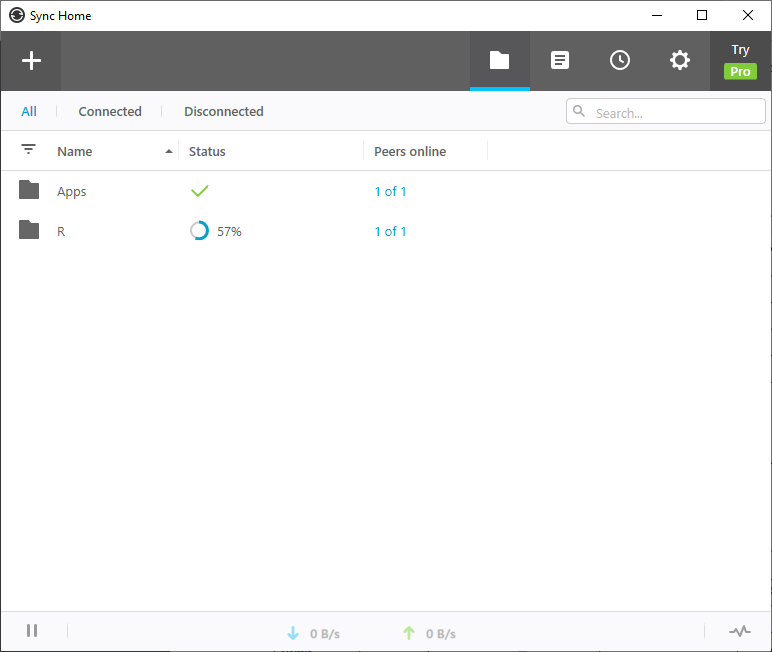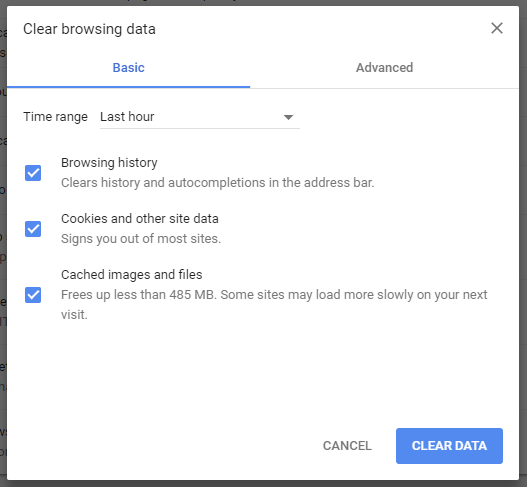Sometimes when running Resilio Sync on Windows, one of the machines may get stuck for a long time at a certain percentage, with no clear reason why it fails to complete.

Resilio stuck at a percentage, no up, no down.
Sometimes when running Resilio Sync on Windows, one of the machines may get stuck for a long time at a certain percentage, with no clear reason why it fails to complete.

Not really.
Only the AVR series chips from the Atmel acquisition have this support, when using the open source GCC suite. And even then, their official compiler build is pretty old.
A quick note: I finally got around to updating mbed-memory-status to support outputting data using the Serial Wire Output port on a Nordic nRF52 Development Kit.
The trick to getting it work was, as usual with Nordic stuff, a compiler #define (-DENABLE_SWO to be exact). Took a bit of digging to figure this one out and get it working.
This actually lead to some further investigation and the interesting discovery that SWO could possibly offer an extra output-only serial port on most Cortex-M3-and-up chips. But, there are still some blockers on getting that thought working and I haven’t had the time to clear them.
It’s been a few weeks since I had a few interactions with the Intel Corporation, so I thought I’d write up a summary of what I think they’re screwing up from the small-developer / indie-developer perspective, in case whoever they choose as their next CEO is open to actual, on-the-ground perspectives.
The start of the story goes something like this: I had an idea about building a piece of electronics using their Thunderbolt 3 connectivity chips. It wasn’t such a huge idea, let’s say, but it would’ve been interesting to me, and it provided an excuse to learn more about the technology.
Heard some people, while I was eating a burrito this evening, talking about the effects of the General Data Protection Regulation (GDPR) coming into force in the European Union next month.
We’ve been discussing this at work lately, as I suspect most businesses are currently, as the GDPR will have huge effects on every modern business in the EU. The service economy is going to have a nice time adjusting to the new rules. It’s going to have a huge impact, and much of what I’m hearing is that it is pretty unclear which direction the implementation of this rule is going to go.
But since I have my doubts about potentially reasonable ideas being used in a well-intentioned manner, here are a few things I think will happen:
1. A bunch of shitty lawyers are going to make a shitload of money off of frivolous lawsuits enabled by the high asymmetric penalties of the GDPR. I’m sure plenty of privacy-justice warriors are going to emerge and abuse the rules.
2. People are going to troll the shit out of this system.
3. A lot of personal data will end up being even easier to tie together using a single primary key / selector (email address, first name + last name, phone number, etc.) because companies will want better mechanisms for eliminating all of that data. Of course, this will just make it easier to gather adversarial intelligence, if a company’s data is compromised.
4. The big cloud players will get bigger, providing turnkey solutions to erase all data related to an individual. Scale will win the day.
5. The small players and Mom and Pop shops will struggle to comply with the GDPR, as usual, and eventually turn over more data to the big cloud players and SaaS offerings.
6. Companies might actually start adding automatic expiration to idle accounts, which would solve a huge number of issues in data privacy anyways. If companies like Yahoo or Facebook actually did this, and stopped trying to juke the stats on userbase growth, a lot less data would have been lost. Simply letting accounts decay, as in the natural order of things, would eliminate huge swaths of leftover identity theft and sources of email spam.
But as far as the GDPR goes, I don’t think we’re going to get any closer to having this for our in-cloud data:

Anyways, maybe next time.